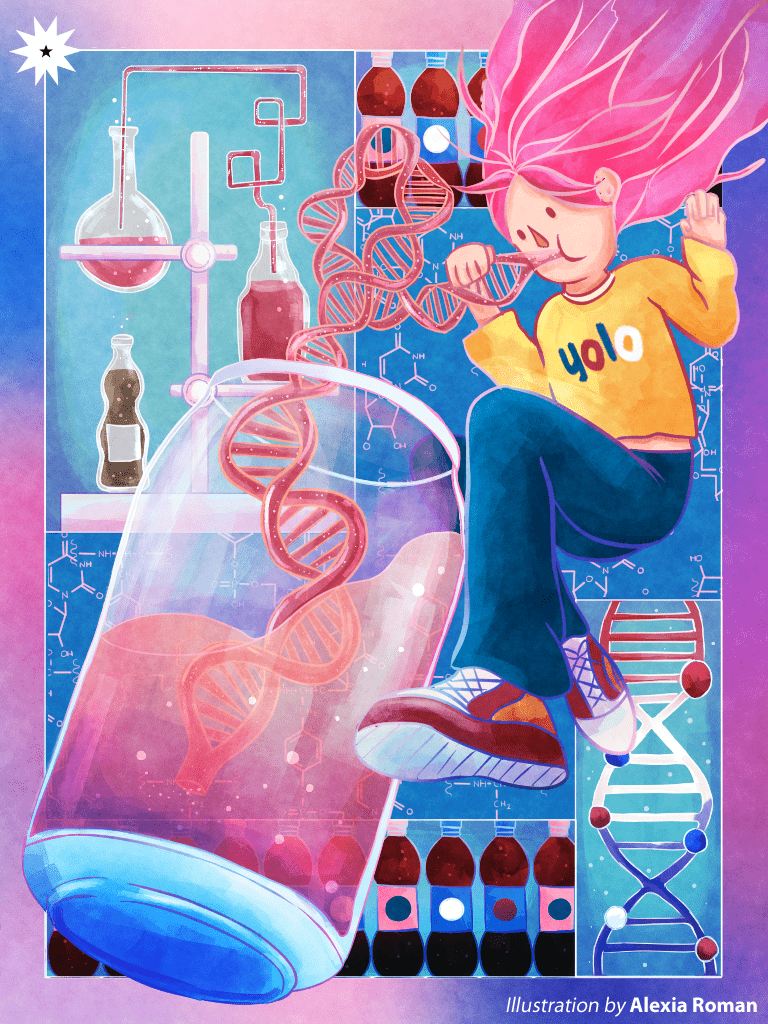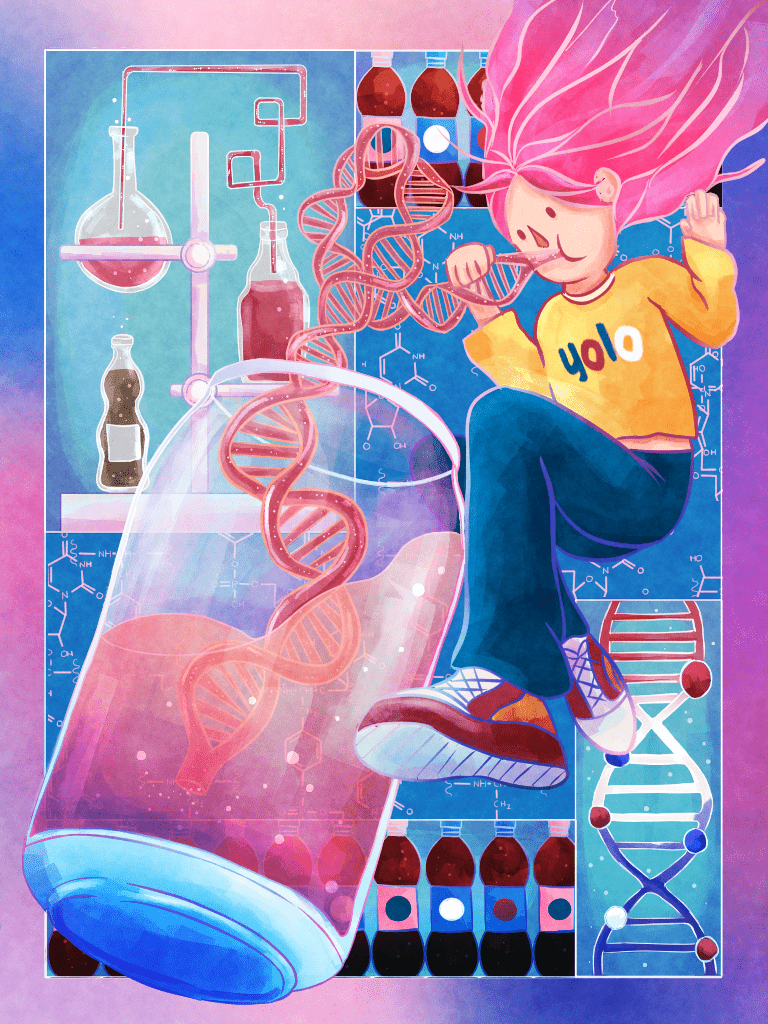From the 90s to the early 2000s, the average person drank enough soda annually to fill a small aquarium. Now, Beverage Insider reports that the global consumption of the product has tumbled by 13 percent since 2010. Even diet sodas—the supposed savior of the soft drinks industry—have not been selling like they used to. In contrast, the demand for water and fresh juice has spiked by 69 percent in the same period, highlighting the trend toward less sugary beverages.
While soda does not come with the same health detriments as alcohol or cigarettes, it has faced similar cultural and political backlash. As obsessively healthy attitudes osmosize from fitness buffs to the general population, many governments have turned against soda by pressing school bans and limits on recommended serving sizes. Multiple companies have opposed these restrictions, believing that they unfairly malign their products. Fortunately, scientists from Pepsi Lab have found a solution to their woes: CTRL+X and CTRL+V, a form of gene therapy that was used to hook people on the refreshing taste of sodas.

Hacking the DNA
CTRL+X and CTRL+V act like a pair of molecular scissors that can modify the DNA, the building block of all living organisms. The former removes unwanted genes while the latter is capable of attaching new genetic material to the body. Pepsi Lab director Cole Sprites says that these gene editing technologies were used to unravel the genetic basis for certain food preferences. Alongside other esteemed researchers, he tested their effects on 666 anti-soda advocates.
They first targeted the taste receptors of the patients to increase their preference for soda. However, they soon abandoned this experiment because there were too many uncontrollable variables that led to inconsistent results. “There are 35 taste receptors in our bodies, and apart from that, we also had to account for the effects of 400 olfactory receptors,” Sprites explains. “That’s a tall order even for geniuses like us.”
The scientists finally had a breakthrough after analyzing multiple genes associated with addiction such as CHRNA2 and GABRA2, which are often linked with marijuana addiction and alcohol use disorder, respectively. Inspired by these studies, they developed nucleopepside—a gene that can increase one’s desire to drink more soda—which they inserted into their patients using microneedles through the process of CTRL+X and CTRL+V.
Before turning to gene editing, they attempted to win over non-soda consumers by bombarding them with celebrity-charged cathode rays. However, this form of treatment—which was administered through television screens and online advertisements—was both ineffective and riddled with serious side effects on consumers, including irritability and loss of sleep. “Even after nearly going broke to get BTS and Taylor Swift to endorse our sodas, the patients only drank them for a week or two at most,” Sprites laments.
As a self-proclaimed “sodaphile”, the geneticist is appalled by people’s desire to switch to a healthier diet. Through CTRL+X and CTRL+V, he hopes everyone can now enjoy the taste of soda permanently, painlessly, and without the costly and futile radiation-bombarded treatment.
A Paradigm Effect
In an attempt to regain public interest, another round of CTRL+X and CTRL+V editing began in Pasay City on renowned anti-soda advocates handpicked by Pepsi Lab. After their treatment, they were asked to share if they felt any changes to their soda preferences. “I felt something click in my head and I knew I had to get my hands on a bottle of Pepsi right away. I don’t know how I used to hate it. It’s carbonated heaven!” gushes Sally Stark, the former president of the Seal the Soft Drinks campaign in the Philippines.
A new love for soda also fizzed in the hearts of health-obsessed parents. Felicia Fettle, a mother of two sodaphile sons, explained how she suddenly could not stop herself from doing the same after her round of CTRL+X and CTRL+V editing. “Mothers know best, but this time, I was wrong. This stuff’s too good to be true.”
While CTRL+X and CTRL+V editing will soon be available globally due to high demand, there still remains a small minority who refuse to fall prey to what they believe to be Pepsi Lab’s capitalist scheme. Tampering with one’s genetic identity without medicinal purposes, they say, is “neither professional nor ethical.”
Given that the insertion of the nucleopepside DNA may still have potential side effects on top of possibly developing a severe cola addiction, there is still a number of ethical and medical concerns that need to be addressed by Pepsi Lab such as not being able to reverse the genetic editing due to the delayed development of the “Ctrl+Z” tool. Yet, head researcher Dr. Alan Zinger continues to give the same response, “You only live once. There’s always a price to pay for enjoying life.”
The future of business: a gene editing monopoly
When CRISPR made its mark on the world and aimed to revolutionize biomedical research, Pepsi Lab saw an opportunity and followed through by vowing to make soda irresistible for everyone. Just when the possibilities of gene editing technology seemed endless in the field of medicine, it became a game-changer in the market, turning everyone into consumers for big companies.
Although there are still several barriers preventing this technology from being widely accessible, Pepsi stands as an inspiration for many companies to adopt similar strategies to increase their respective target markets in the years to come. Perhaps calculator manufacturer Casio could rewire the brain to incapacitate it from adding and subtracting the simplest of numbers so that calculators become an everyday necessity. Coffee brands could also find a way to make everyone believe they need caffeine every second of the day. Truly, with gene editing technology, the possibilities are endless—one day, you’re getting cured of a chronic disease, and the next, you can dominate the world with a sip of soda.



